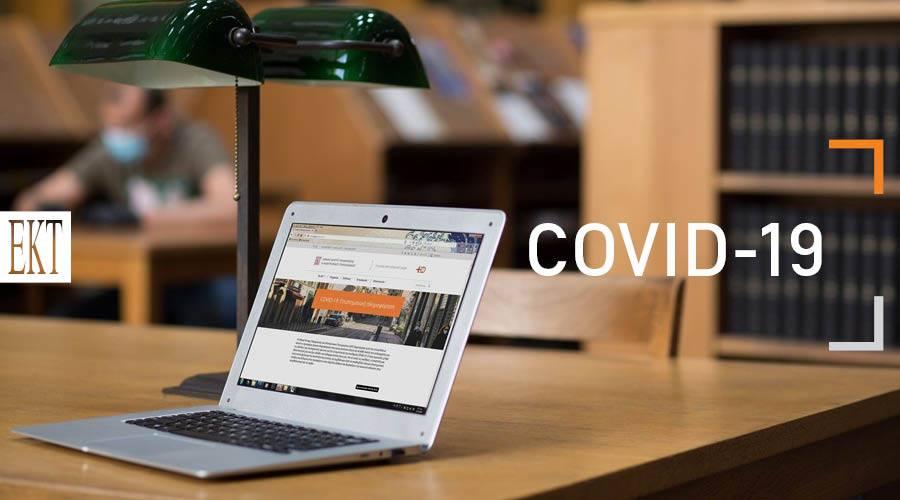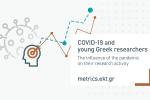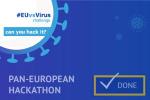
There have been more than 20,000 visitors so far to EKT's website, which provides a steady stream of valid information on the COVID-19 pandemic. The pandemic has brought to the fore not only science, but also the value of credible citizen information.
Responding to the challenge, EKT's information scientists daily identify and present new publications in reputable scientific journals covering various aspects of the phenomenon and different research areas: from medical research to the impact of the pandemic on psychology, education, labour relations and tourism.
The website 'went on the air' in March, during the first days of the restrictive measures. Today, it includes more than 140 publications, and a new section has been added with selected articles by Greek researchers available from open access information sources. Take advantage of the potential of EKT's website and find open access scientific publications on the effects of COVID-19 on a socio-economic level.
Aside from the impact on public health, how does COVID-19 affect small businesses and the professional ambitions of employees? How will education be shaped after the pandemic subsides? How is the tourism industry expected to evolve in the post-COVID-19 era?To these and many other questions, one can find the most recent views of researchers as published in international scientific journals.
According to the international literature and domestic research data, so far, the COVID-19 pandemic has been considered a public health problem. However, according to research published in the European Journal of Risk Regulation, the current state of emergency will be followed by political, social and economic developments that could lead to serious disruptions as the cost of the pandemic will not only be high but also unequally distributed, both across countries and different social groups.
COVID-19 has led to many governments taking drastic restrictive measures and temporarily suspending the operation of small and medium-sized enterprises. According to the existing international literature, many economic factors threaten the existence of many small and financially fragile businesses. On EKT's website you can find surveys that analyse the challenges faced by entrepreneurs as a result of the crisis and study publications that propose measures that could be taken by policy makers to help entrepreneurs. One such study that sheds light on how COVID-19 affects small businesses was published in the Journal of Business Venturing Insights by researchers at the University of Hohenheim.
Also, a recent study by the IZA Institute of Labour Economics, which looked at the expected impact of the COVID-19 crisis on workers' careers and professional aspirations, showed that workers will see the labour market differently in the future and have different priorities regarding work in the future. In particular, it seems that employees will pay more attention to working conditions and the balance between professional and personal life.
At the same time, in terms of education, the rapid spread of COVID-19 has led many universities and colleges to turn to distance learning for an indefinite period of time. The technology was used quickly and in innovative ways to continue the teaching and learning process. It is unknown at this time what will happen following the pandemic. However, many possible future scenarios are being discussed. The use of emerging technologies in education, such as artificial intelligence for adaptive learning and virtual reality, is likely to be a key component of a transformed educational process, according to new research data.
In the post-COVID-19 era, according to research published in the journal Tourism Geographies: An International Journal of Tourism Space, Place and Environment, tourism will evolve. As mobility continues to depend heavily on public health guidelines, some tourism businesses and tourist areas will see their presence shrink, leading to a shift towards local consumers and their needs. With the increase in immunity, the tourist will once again become part of the landscape, while the local ties built during the crisis may remain through the reconnecting of tourism with the needs of the host communities as part of a survival strategy.
More information and research on the effects of COVID-19 in the areas of business, employment, education and tourism can be found on EKT's website.















